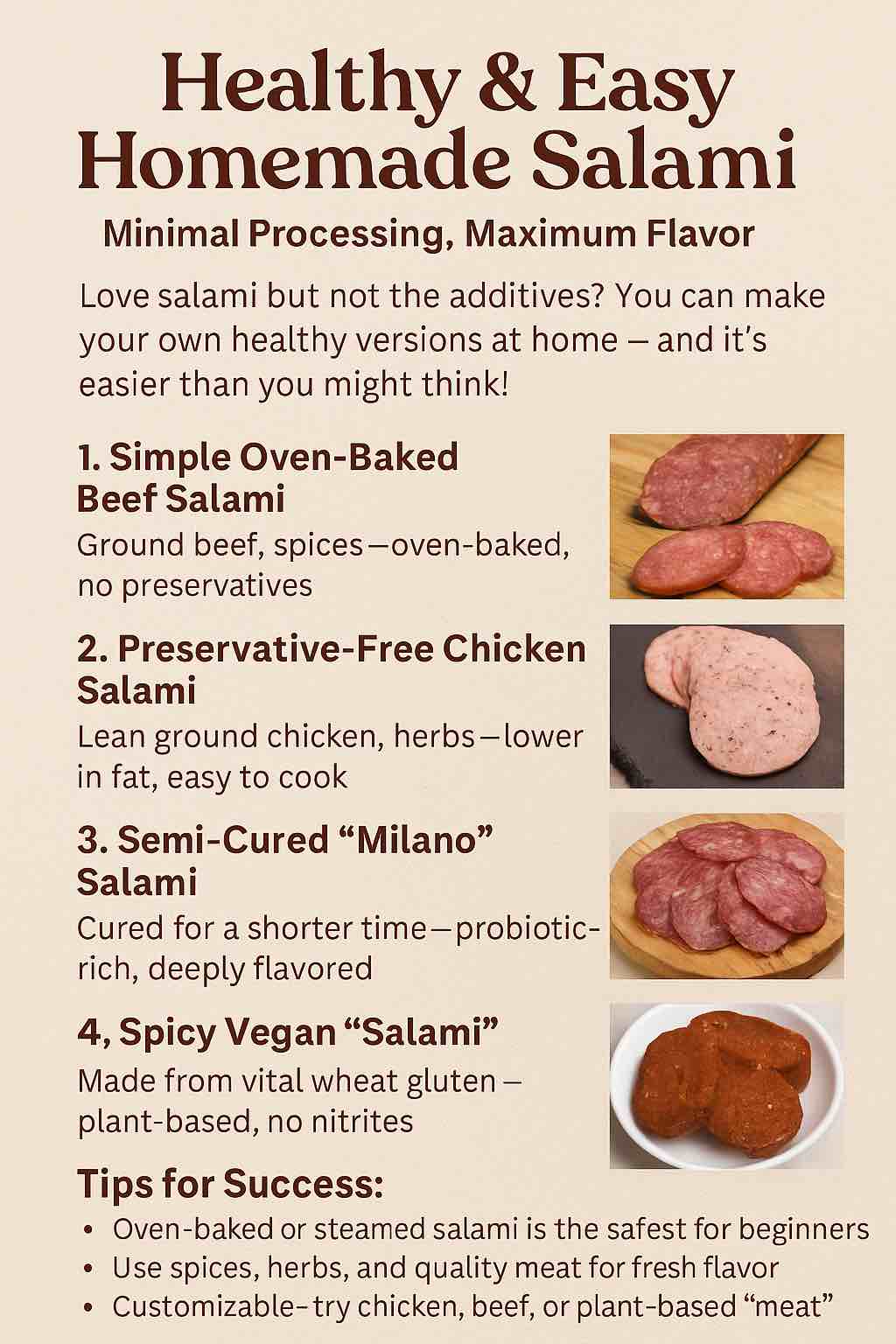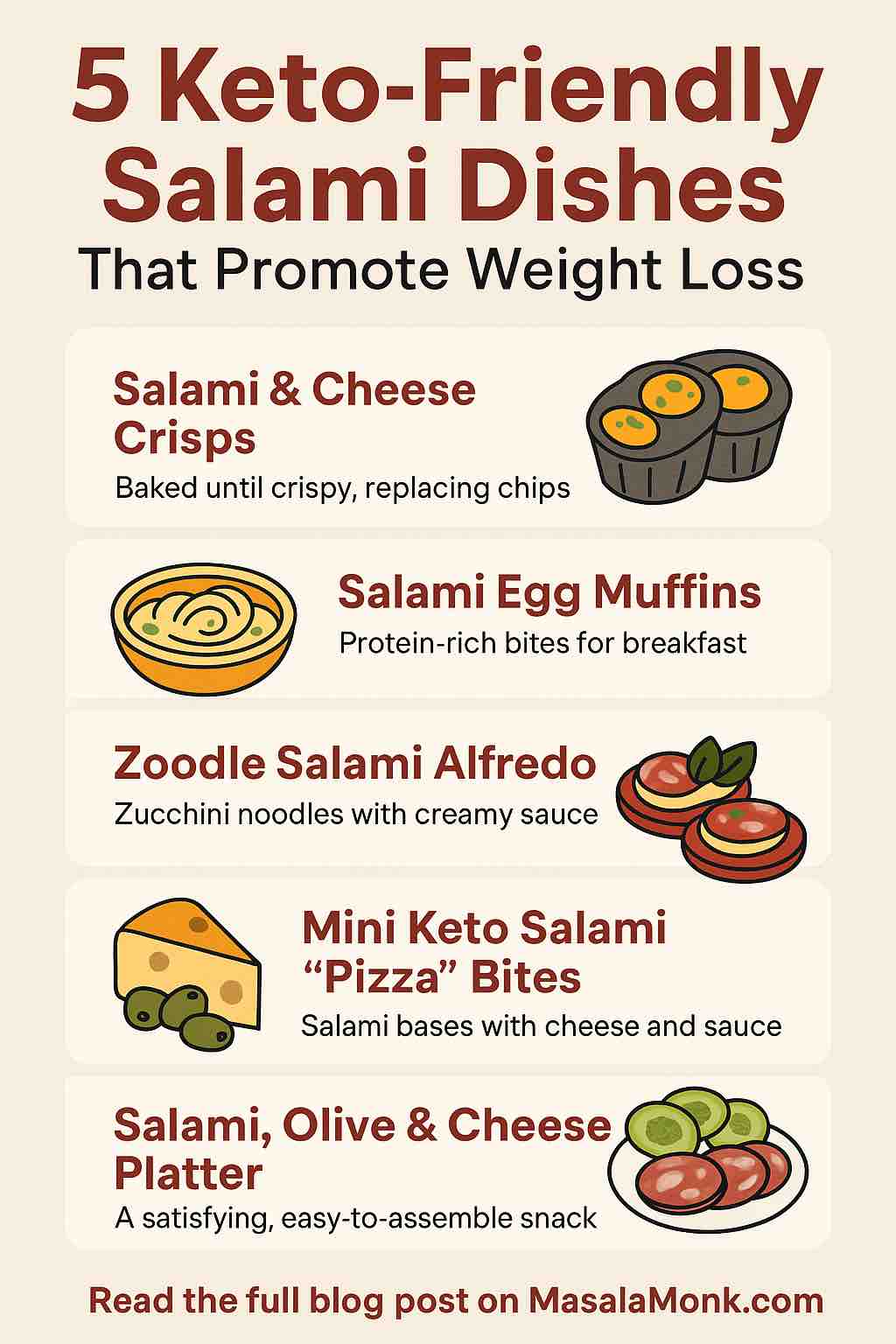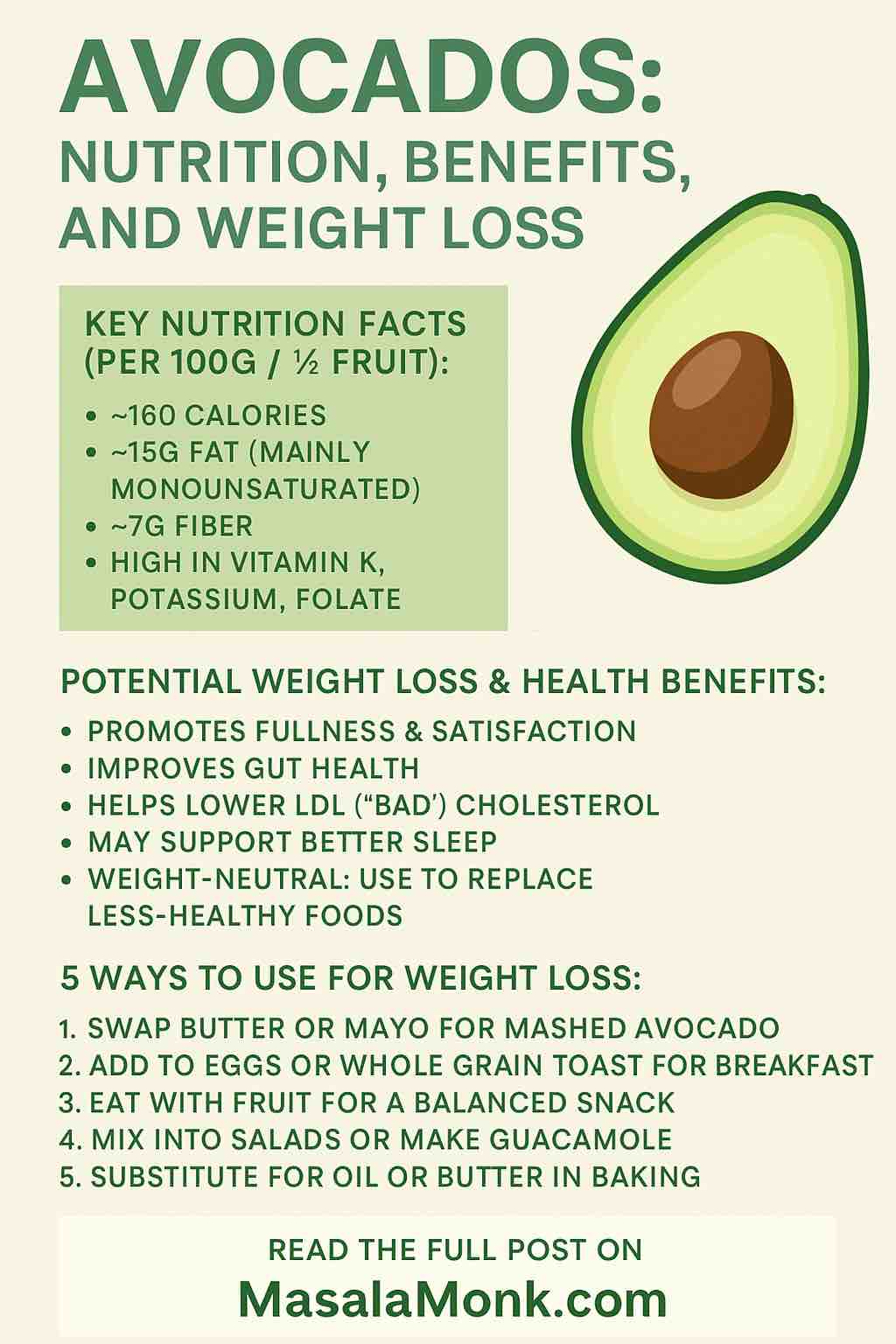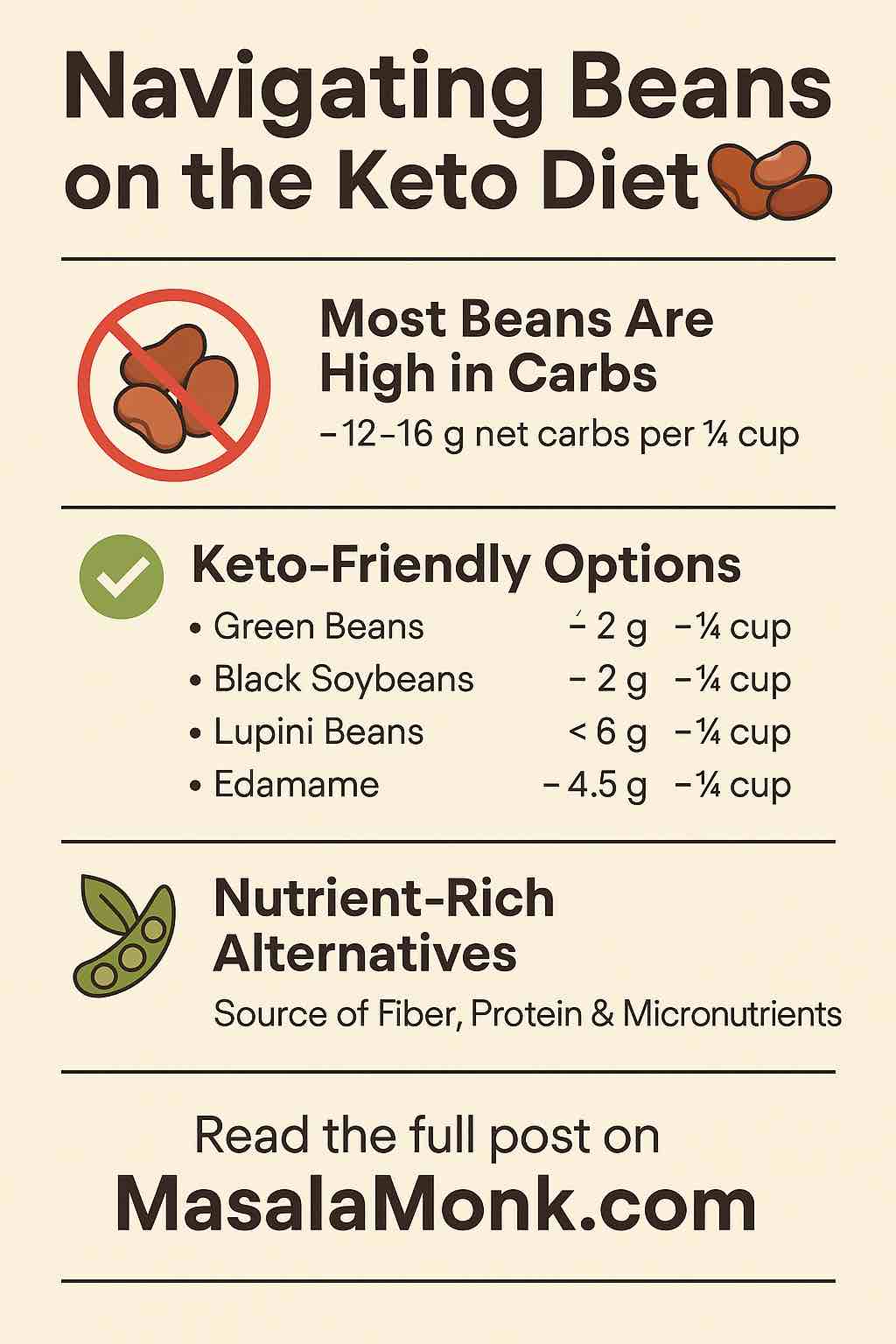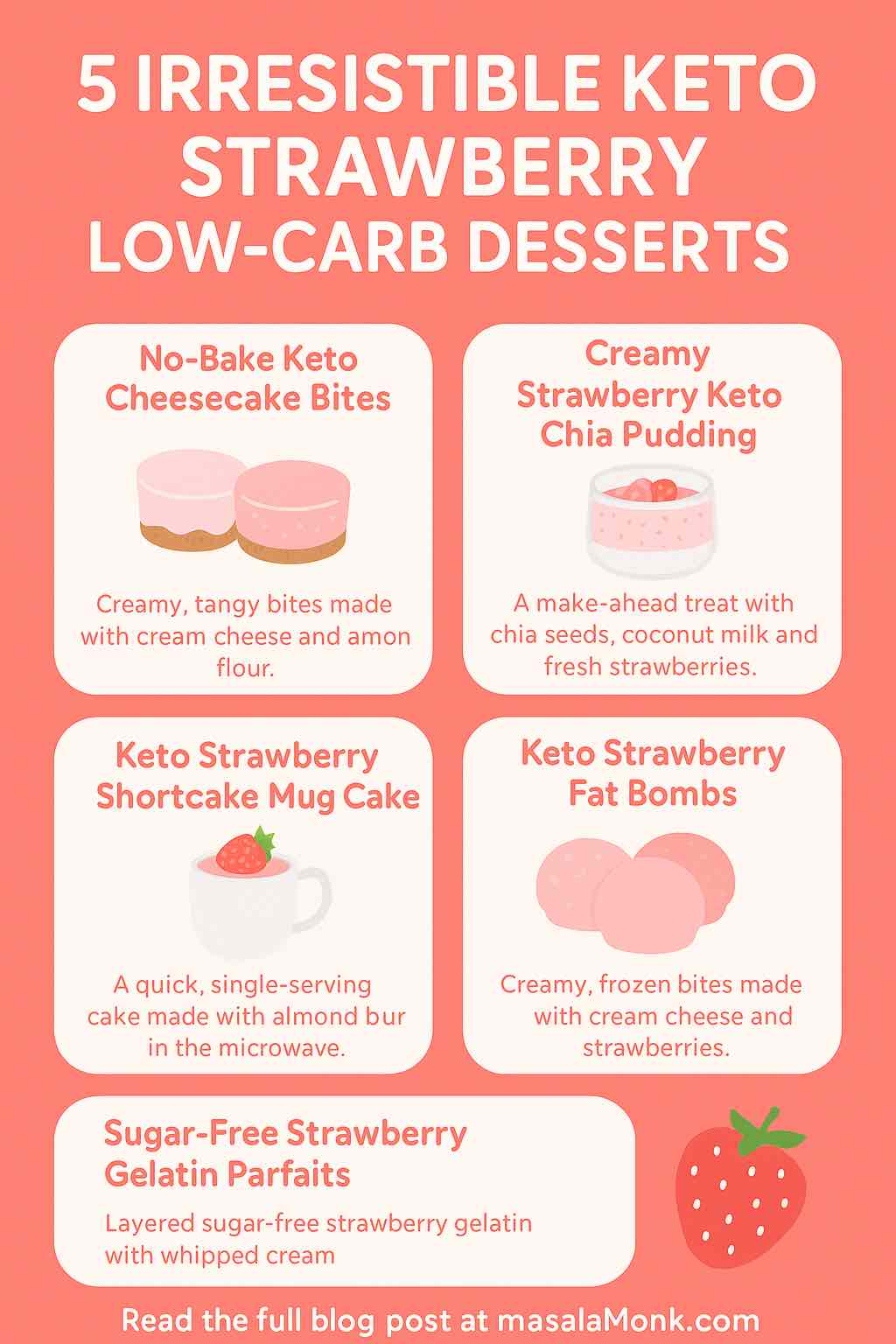
Strawberries on keto? Absolutely! While many people believe fruit is off-limits on a ketogenic diet, strawberries—in moderation—fit right into a low-carb lifestyle. Sweet, juicy, and bursting with flavor, strawberries can elevate your dessert game without tanking your carb count. In this blog post, I’m sharing five irresistible keto strawberry desserts that are practical for real life: they’re easy, delicious, and will satisfy your sweet tooth, all while keeping your macros on track.
Let’s dive into these guilt-free pleasures!
1. No-Bake Keto Strawberry Cheesecake Bites
Who doesn’t love a good cheesecake? Now, imagine all that creamy, tangy goodness transformed into adorable, bite-sized snacks that require no oven time. These cheesecake bites come together in minutes and are perfect for meal prep, after-dinner treats, or mid-day cravings.
Ingredients:
- 8 oz cream cheese, softened
- 1/3 cup powdered erythritol or monk fruit sweetener
- 1/2 tsp vanilla extract
- 1/2 cup diced strawberries or 1/4 cup freeze-dried strawberries (crushed)
- 1/2 cup almond flour
- Optional: unsweetened coconut flakes or sugar-free chocolate chips for rolling/dipping
Directions:
- Beat the softened cream cheese, sweetener, and vanilla until smooth.
- Fold in strawberries and almond flour until you have a thick, scoopable dough.
- Scoop out small portions and roll into balls.
- Chill on a parchment-lined tray for 20 minutes. If desired, roll in coconut or dip in melted sugar-free chocolate.
Practical Tips:
- Use freeze-dried strawberries for a stronger flavor and firmer texture.
- Store in an airtight container in the fridge for up to 5 days, or freeze for a cool summer snack.
2. Creamy Strawberry Keto Chia Pudding
Busy mornings? Need an easy make-ahead breakfast or dessert? Keto chia pudding is your friend! Chia seeds soak up the liquid and thicken overnight, while strawberries lend a pop of sweetness and color.
Ingredients:
- 1 cup unsweetened almond or coconut milk
- 1/4 cup chia seeds
- 1/4 cup strawberries (fresh or frozen)
- 2-3 tbsp erythritol or monk fruit sweetener
- 1/2 tsp vanilla extract
Directions:
- In a blender, puree strawberries with milk, sweetener, and vanilla.
- Stir in chia seeds and pour into a mason jar or bowl.
- Refrigerate for at least 4 hours, ideally overnight.
- Stir before serving. Top with sliced strawberries, keto granola, or a dollop of whipped cream.
Practical Tips:
- Double or triple the recipe for meal prep!
- Layer with Greek yogurt or nut butter for a parfait-style treat.
3. Keto Strawberry Shortcake Mug Cake
Short on time but craving something special? This mug cake is a game-changer: you get all the nostalgia of strawberry shortcake, but it’s ready in under 5 minutes. Plus, it’s perfect for portion control.
Ingredients:
- 1 egg
- 3 tbsp almond flour
- 1 tbsp coconut flour
- 1 tbsp melted butter or coconut oil
- 1 tbsp erythritol or monk fruit sweetener
- 1/4 tsp baking powder
- 1/2 tsp vanilla extract
- 2-3 strawberries, diced
Directions:
- In a large mug, whisk together the egg, sweetener, and melted butter.
- Stir in almond flour, coconut flour, baking powder, and vanilla.
- Gently fold in the strawberries.
- Microwave for 90 seconds to 2 minutes, until set.
- Let cool briefly, then top with keto whipped cream or a few more fresh berries.
Practical Tips:
- Every microwave is different, so start with 90 seconds and add more time as needed.
- For extra decadence, add a square of sugar-free white chocolate in the center before microwaving.
4. Keto Strawberry Fat Bombs
Fat bombs are a keto staple—and for good reason. They’re convenient, customizable, and crush sugar cravings. Add strawberries and you get a naturally sweet, refreshing twist perfect for summer!
Ingredients:
- 4 oz cream cheese, softened
- 4 oz unsalted butter or coconut oil, softened
- 1/4 cup strawberries, pureed or finely chopped
- 2-3 tbsp powdered sweetener
- 1/2 tsp vanilla or lemon zest (optional)
Directions:
- Beat cream cheese, butter/coconut oil, sweetener, and vanilla until fluffy.
- Fold in the strawberry puree.
- Scoop into silicone molds or mini muffin liners.
- Freeze for 1-2 hours, then pop out and store in a freezer bag or container.
Practical Tips:
- For firmer fat bombs, use freeze-dried strawberries instead of fresh.
- Experiment with flavor by adding a dash of lemon zest or swapping vanilla for almond extract.
5. Sugar-Free Strawberry Gelatin Parfaits
Craving a classic jello cup—but keto? These gelatin parfaits layer homemade sugar-free strawberry gelatin with whipped cream or mascarpone. They’re fun to eat, visually beautiful, and perfect for parties!
Ingredients:
- 1 cup fresh strawberries, pureed
- 1 cup water
- 1-2 tbsp powdered erythritol or monk fruit sweetener
- 1 tbsp grass-fed gelatin
- 1 cup heavy cream or mascarpone, whipped with sweetener
Directions:
- Heat water and sweetener in a saucepan until steaming. Whisk in gelatin until dissolved.
- Remove from heat and blend with strawberry puree.
- Pour into small jars or cups and chill for 2-3 hours, until set.
- Top with a swirl of whipped cream or mascarpone, and garnish with a sliced strawberry.
Practical Tips:
- Use silicone molds for fun shapes, or layer in wine glasses for an elegant presentation.
- Add a splash of lemon juice to enhance the strawberry flavor.
Final Thoughts
Keto desserts don’t have to be complicated—or boring. With a handful of fresh strawberries, the right keto-friendly ingredients, and a bit of creativity, you can enjoy indulgent sweets without the guilt. Whether you crave creamy cheesecake, fluffy cake, or refreshing gelatin, there’s a keto strawberry dessert here for every craving and every cook.
Ready to get started?
Pick a recipe, share your creations with #KetoStrawberryDessert, and let me know your favorite in the comments. If you want even more keto dessert inspiration (or need help troubleshooting a recipe), just ask!
Pin this post for your next dessert craving, and happy low-carb baking! 🍓✨
10 Keto Strawberry Dessert FAQs
1. Can I use frozen strawberries in these recipes?
Yes, frozen strawberries work well for all these recipes. Thaw them first and drain excess liquid for best texture, especially in no-bake and fat bomb recipes.
2. What are the best sweeteners for keto desserts?
Erythritol, monk fruit, allulose, and stevia blends are excellent options. Powdered sweeteners dissolve more smoothly in no-bake recipes and fillings.
3. How do I calculate net carbs in these desserts?
Net carbs are calculated by subtracting fiber and sugar alcohols (from keto sweeteners) from total carbohydrates. Always check labels, especially for almond flour and sweeteners.
4. How long can I store these desserts?
Most no-bake and cheesecake-based desserts last 4–5 days refrigerated in airtight containers. Fat bombs and gelatin cups can be frozen for up to 1 month.
5. Can I make these recipes dairy-free?
Absolutely! Substitute coconut cream for heavy cream and vegan cream cheese for dairy cream cheese. Use coconut oil or vegan butter in place of regular butter.
6. What can I use instead of almond flour for nut allergies?
Sunflower seed flour or coconut flour can often be substituted. If using coconut flour, use only 1/3 the amount and add extra egg or liquid.
7. How do I keep my cheesecake bites from being too soft?
Chill them well before serving. Using freeze-dried strawberries instead of fresh prevents excess moisture. You can also add a little more almond flour.
8. Can I make these desserts ahead for a party?
Yes! All of these recipes can be prepared a day or two in advance. For best presentation, add whipped cream or garnishes just before serving.
9. Will these desserts raise my blood sugar?
When made with approved keto sweeteners and portioned correctly, these desserts have minimal impact on blood sugar for most people. Monitor your own response if you’re sensitive.
10. Can I double or triple the recipes for meal prep or gatherings?
Definitely. Most recipes scale easily. When increasing batch size, mix thoroughly for even distribution of ingredients, and adjust chill/bake times as needed.

